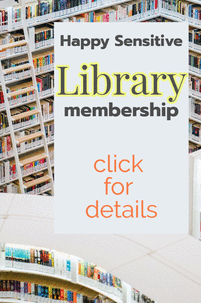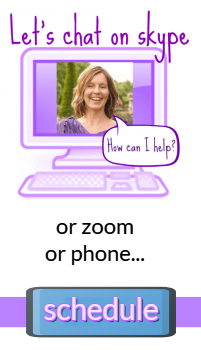When we get defensive, we defend against something that we feel someone is trying to impose on us. Sometimes the other person is trying to impose something, but often they aren’t.
Defensiveness gets in the way of conversations and of learning. When we get defensive, we don’t hear the other person. We worry about implications and we shut down.
Yet, often defensiveness is completely unnecessary.
In my coaching and healing work, I often have to tell clients something difficult. Yet what I found makes things most dificult is not what is actually going on, but what someone assumes that means.
Assuming is tricky because it’s often lighting-quick
Here is an example.
A lady wrote in after I had done a long-distance healing for her. A long-distance healing always comes with a detailed report. I tell people about the emotions and beliefs and other things that I identified and let go of.
In this case, she wrote in to say that she was initially very offended at my healing report. She understood that I had said that she was a bad person.
Thankfully, she was complaining to her husband about what I had said in the report and he offered to read what I had said. After he did, he said to his wife: but Caroline doesn’t say anywhere that you are a bad person! She just said that you had a lot of anger that she identified and let go of!
At that point, my client had an epiphany, she realised that she had an association that anger was bad. So when I told her she had a lot of anger, what she heard was that she was a bad person!
It’s not just you, it happens to everyone
Interpretations like the example above happen all the time! Actually, I was really glad that this lady wrote to me about this because it had happened before, but without explanation.
I had had clients get offended before about things I had pointed out. Somehow, they interpreted what I shared as something incredibly offensive and negative, but I never quite knew why!
Our inner selves are logical, but complicated. When we hear or experience something, it can lead to a whole series of inner reactions and inner meaning-making. Something happens in the outer world, a lot of lightning-quick internal things happen in response, and then we feel a certain way.
Sometimes our feelings are intuitive and spot on. Yet other times they are the result of fixed inner meaning-making.
We are often not aware of the assumptions and beliefs that are inbetween what was said and what we feel or conclude. Yet when we slow down, we can (start to) unscramble what happened.
When emotions run high, and you feel wrongly convicted of something, try to slow down:
- Take a moment to consider that maybe, just maybe, something got lost – or rather assumed – in translation. What the other person said and what you heard may not be the same thing.
- Check with someone else. If you have an email you can show like my client did, that helps! If you don’t have a written account, then try to walk the other person through what factually happened, not how you felt about it! Then see if there might be something you assumed that wasn’t there.
- If there seems to be a mismatch between what happened and what you heard, look for the inner “translation” piece. What is the belief, or series of beliefs, that made one thing feel like something else? Identifying this is incredibly powerful! Chances are, this belief has been mucking up conversations your whole life.
To create a better world together, we need to hear each other.
To be able to hear each other, we each need to take responsibility for our inner distortions. Those inner distortions can be the result of our upbringing and schooling, of negative experiences and trauma. They can even be subtle ideas we inherited from our ancestors.
Cleaning up these distortions not only makes us better communicators, it also leads to more inner peace.
Cleaning up, is the way
Inner distortions set up fixed worldviews that are unyielding. They can keep us stuck in the same pattern. Inner distortions can be victimizing. They can also be racist.
Inner distortions are like invisible prisons. They stay invisible when we only hang out with “people like us” but they become noticeable when we spend time with people who have different ideas and experiences. It’s where our ideas clash that the distortions rear their complicated heads.
So especially when things get heated and intense, it’s important to practice slowing down and stepping back. Check if what you heard, is actually what the other person said. If it’s not, you need to take the time to clean up the inner distortion first, so that it doesn’t keep getting in the way.
It’s near-impossible to keep listening when all you keep hearing is “you’re a bad person!” And even if the other person were to truly insinuate that in one way or the other, it’s still much easier to maintain open communication when you don’t get triggered.
Getting triggered – what is it really?
Getting triggered basically means that negative meanings already residing on the inside are getting activated by means of something or someone on the outside.
If there is no single part of me* that believes I am a bad person, then no matter what someone says or does, I cannot get triggered into feeling or believing that I am a bad person.
(*Please note that this includes the vast subsconscious, not just your conscious thoughts! So don’t be too quick to assume that “you don’t hold beliefs like that anywhere on the inside of you”. When I say “believe” I don’t just mean what you choose to believe!
For a quick gut check, take a few moments to breathe and settle into your body. Then say some offensive words out loud. If your body is responding with tension or emotion, you are holding that belief on the inside as well.)
That is why a lot of the healing work I teach my clients how to do themselves, revolves around cleaning up these inner triggers and assumptions. We need a just world on the outside, yes. But we also need a just world on the inside.
The Outer and the Inner feed each other
If the world is full of bullying, then the smallest insecurity in me can be pushed to grow into a gaping wound, that is true. So outer injustices need to be addressed and corrected. Absolutely.
What’s more, a lot of injustice is not about feelings as much as it is about very physical harm and inequality of power. Feelings can steer someone’s response, but if someone physically attacks you, your feelings are less the point. And if you are not invited for a job interview you are qualified for based on the sound of your name or the way you look alone, then no amount of inner peace makes that o.k.
On the other hand, if I am full of inner bullying, filled to the brim with pain, then the smallest and most innocent action by someone else can bring all that pain to the surface. That pain can then make me act out and make things worse. It can stop me from seeing very real positive opportunities. Getting others to bend over backwards not to trigger me would not only be unrealistic, but also unfair.
In the end, justice is an inner and outer job. The more we clean up our inner wounding, the more resilient we are in the face of outer bullying and injustice. The more resilient we are, the more empowered we are to address injustice.
And…
The more we clean up outer injustices, the less any inner pain will get triggered. The less we get triggered by outside people and actions, the more space we’ll have to heal and claim the life we want to live.
We need both. We need to do both.





















Comments on this entry are closed.